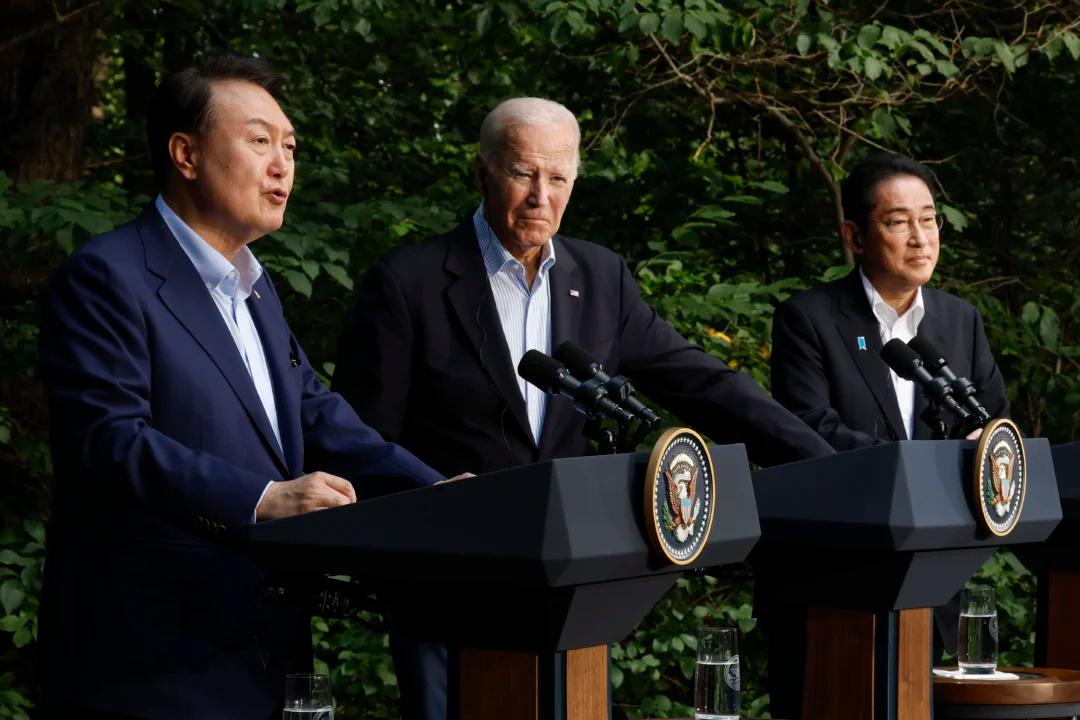Leaders of Japan, South Korea, and the United States have renewed their commitment to security cooperation a year after their first trilateral summit.
Marking the anniversary of a meeting among President Joe Biden, Japanese Prime Minister Fumio Kishida, and South Korean President Yoon Suk-yeol at Camp David, the leaders issued a joint statement on Aug. 18, renewing the pledge to consult with each other on “regional challenges, provocations, and threats affecting our collective interests and security.”





